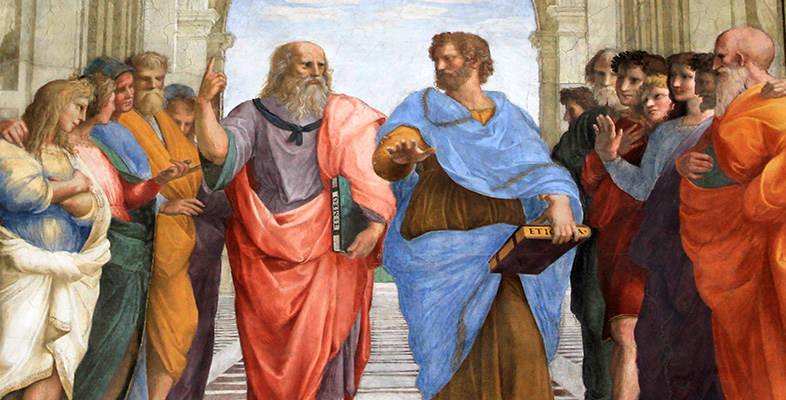4.3 Responses to religion
Reasoned responses to religion could take many forms. It was rare for writers to profess outright atheism; even in those cases where we may suspect authors of holding this view, censorship laws made their public expression unlawful. These laws were particularly stringent in France. In many cases reasoned critique was applied to the practices of institutional religion, such as the corruption of the clergy or the rituals of worship, rather than to more fundamental matters of doctrine or faith. Wilberforce, a devout Christian, argued that Sunday might be spent more cheerfully than was customary in England, and Robert Owen's attacks on Scottish sectarianism also included complaints about the dour Calvinist sabbath. It was extremely common for those with specific church allegiances to adopt the rationalising approaches popularised in more secular contexts. Mungo Park's Scottish Nonconformity (Park was a ‘Secessionist’, a sect of Protestant Calvinism) was coloured by the deist argument from design, discussed below. In England the Protestantism of the relatively tolerant Anglican Church accommodated a wide range and variety of approach to matters of belief. In both France and Britain there was a wealth of parsons, priests and lay preachers engaged in studying all the topics of interest to the average philosophe. Gilbert White, a country parson, was a naturalist, author of the still popular Natural History of Selborne (1789). One of the most prominent figures of the British Enlightenment, Samuel Johnson (1709–84), was a devout Anglican. In our period, Christianity itself was often orientated towards Enlightenment and reform (Aston, 1990, pp. 81–99). In 1790, when the fiercely controversial reform of the French Church was introduced in revolutionary France, it had supporters as well as opponents among the clergy.
Natural religion was a form of religious belief founded on the observation of nature rather than on revelation or scriptural authority. Often associated with this approach was deism, a particular religious belief which holds that God designed and created the world, but so effectively that there would be no further need for his intervention. Deist views were expressed by those who questioned conventional Christianity and who believed in a universal rather than a sectarian God. They often used reason and argument together with their observation of nature: the existence of a benevolent, intelligent creator or Supreme Being was inferred from observation of the complex but well-ordered and indeed marvellous universe explored, revealed and explained by Newton. (This was called the ‘argument from design’.) The notion of God as a necessary creator, first cause, supreme architect, or a kind of celestial clockmaker who devised and set the universe in motion, was well expressed by writers such as Voltaire. In 1774, at the age of 80 and moved by the spectacle of a magnificent sunrise, he prostrated himself on the ground, exclaiming: ‘I believe! I believe in you! Powerful God, I believe!’ Clambering to his feet, he added dryly: ‘As for Monsieur the son and Madame his mother, that's a different story’ (quoted in Gay, 1968, p. 122). While philosophers such as David Hume questioned the logic behind such professions of faith, others were keen to embrace a belief in God apparently grounded in empiricism. The Catholic Church in France tended to regard deism as located on the slippery slope leading to atheism, while sections of the Anglican Church tolerated and even encouraged deist sentiments as a support to religion. Many Anglicans cited natural religion or deism alongside arguments drawn from the Bible. Cugoano was among those who adopted this eclectic approach in his views on slavery, and Rousseau saw God in nature as well as in the morality of the Gospels. William Gilpin, English parson and writer of travel guides, likewise saw God's presence in the beauty of the landscape while remaining attached to broad-church Anglicanism.
Summary point: deism, a reasoned form of belief in God based on the methods of natural religion – that is, observation of the natural world – often deployed the argument from design. This was the view that the intelligence and goodness of God, as designer of the world, could be inferred from the workings and beauties of nature. Deist arguments were used by those who embraced more traditional forms of worship, as well as by those who wished to challenge them.
Evangelical Christianity in Britain adopted the Enlightenment's concern with empirical investigation and applied it to its thinking on both the natural world and the Scriptures, albeit within the framework of particular religious beliefs, in order to produce a more reasoned form of worship better adapted to modern times. There were many attempts such as these to challenge forms of belief based on an unthinking acceptance of tradition and authority. The intellectual refinement of faith was prevalent. William Wilberforce, in his A Practical View of the Prevailing Religious System of Professed Christians (1797), subjected the state of contemporary religion to rational scrutiny and connected the decline of faith with increased industrialisation and mechanisation. His method of analysis drew on an enlightened secular approach in order to signal the need for a more intensely experienced form of faith. His personal commitment to religion continued to embrace a non-demonstrable belief in the afterlife. Enlightened rational scrutiny could assist in religious reform without destroying faith.
Setting aside these various shades of response to religious issues, one of the major developments of the Enlightenment was an increasingly secular approach to morality. It became more common for writers of all types of religious persuasion, as well as sceptics and non-believers, to discuss virtue and vice in terms that had little to do with religion or the spiritual and more to do with notions of individual or social well-being. Sade's sensualism rejected conventional Christian morality and social norms in order to take individual self-interest to excessive lengths.
Summary point: the Enlightenment's spirit of rational enquiry was deployed even by those who adhered to an intense spirituality. However, moral debates were increasingly decoupled from matters of religious belief and doctrine.
